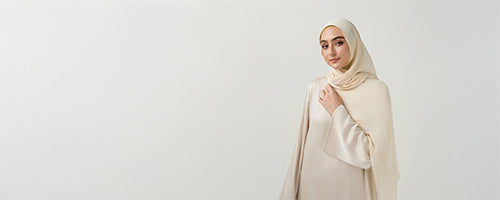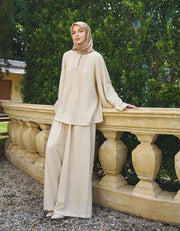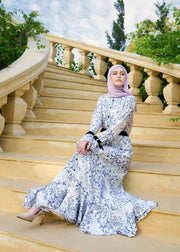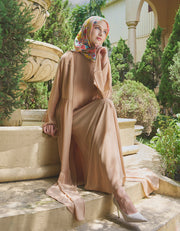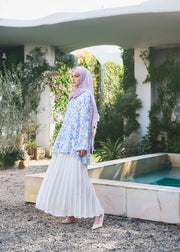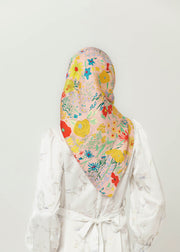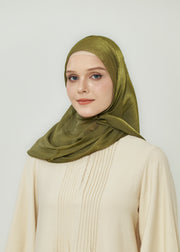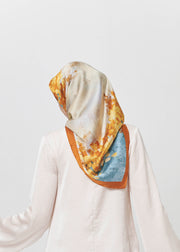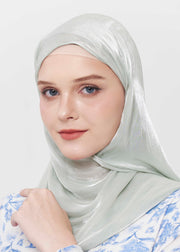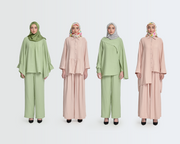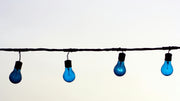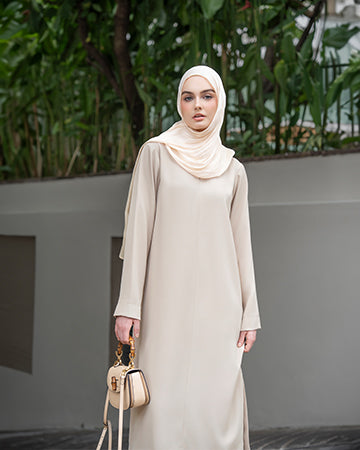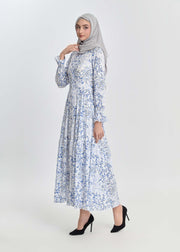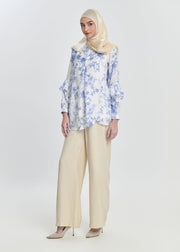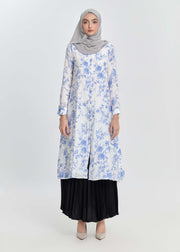Top Traditional Muslim Accessories to Complete Your Look
No outfit is truly complete without the right accessories—and in the world of modest fashion, Muslim fashion accessories carry both visual appeal and cultural significance. From intricately embroidered hijab pins to statement prayer beads, traditional accessories help elevate everyday looks and express personal identity in subtle, meaningful ways.
In this article, we’ll explore the top traditional Muslim accessories that not only add beauty to your outfit but also connect you to a deeper sense of heritage and faith.
How Traditional Accessories Define Modern Modest Fashion
Accessories in Muslim fashion do more than serve a decorative purpose. They:
-
Complement modest clothing with elegance
-
Reflect cultural heritage and craftsmanship
-
Add a layer of personal style while staying true to Islamic values
-
Often carry religious or spiritual symbolism
Whether you're dressing for Eid, a wedding, or simply enhancing your everyday abaya or jilbab, Muslim fashion accessories can make a modest outfit feel sophisticated, confident, and complete.
Hijab Pins and Brooches: Functional and Decorative
Hijab pins are essential for many hijab styles, securing the fabric in place without damaging delicate material. But beyond functionality, they’ve become a fashion statement.
Traditional Styles Include:
-
Pearl-tipped pins for a soft, elegant touch
-
Gold and silver brooches with Islamic patterns (like arabesques or calligraphy)
-
Jeweled pins for formal occasions or weddings
Why They Matter:
Hijab pins reflect personality—whether minimalist or ornate—and often become signature elements of one’s daily style.
Hijab Pins and Brooches: Functional and Decorative
Tasbih (Prayer Beads): Spiritual and Stylish
One of the most iconic Muslim fashion accessories, the tasbih is used for dhikr (remembrance of God). But beautifully crafted tasbihs have also become a wearable symbol of spirituality.
Materials Used:
-
Wooden or date seed beads for a natural look
-
Semi-precious stones like agate, turquoise, or onyx
-
Silver or gold-plated tassel embellishments
Why They Matter:
Carried in hand, worn on the wrist, or hung from bags, tasbih beads add spiritual depth to your appearance.
Tasbih (Prayer Beads): Spiritual and Stylish
Embroidered Bags and Clutches
Bags and clutches in traditional Muslim fashion often feature regional embroidery, Islamic motifs, or Arabic calligraphy.
Styles May Include:
-
Moroccan leather purses with geometric patterns
-
South Asian potli bags with mirror work
-
Turkish clutches with Ottoman floral prints
Why They Matter:
These accessories blend fashion and heritage—perfect for weddings, Eid, or evening gatherings.
Henna (Mehndi): The Oldest “Accessory”
Though not an item you wear, henna is a timeless form of body adornment. Applied during religious celebrations, weddings, and cultural festivals, it acts as a traditional accessory on its own.
Common Designs:
-
Arabic floral patterns
-
Indo-Pakistani intricate lace motifs
-
North African geometric designs
Why It Matters:
Henna connects fashion with tradition, especially during sacred events like Eid al-Fitr or a nikah ceremony.
Henna (Mehndi): The Oldest “Accessory”
Traditional Jewelry: Statement Pieces with Meaning
Jewelry in Muslim fashion often carries cultural or religious symbolism.
Popular Pieces Include:
-
Earrings and necklaces featuring crescent moons, stars, or Allah calligraphy
-
Bangles and bracelets with inscribed Qur’anic verses
-
Nose rings and anklets common in South Asian bridal fashion
Why They Matter:
Traditional jewelry adds drama and elegance to modest attire while connecting the wearer to generations of style.
Belts and Waistbands for Abayas and Kaftans
While many traditional garments are loose and flowing, belts or sashes can be used to give structure or enhance silhouette—especially for special events.
Styles to Try:
-
Embellished belts with beads or crystals
-
Fabric sashes in contrasting colors
-
Embroidered waistbands inspired by regional costume
Why They Matter:
They transform a simple abaya or kaftan into a more formal and styled outfit without compromising modesty.
Statement Scarves and Wraps
Beyond the hijab, Muslim women often use additional scarves or shawls for layering, especially during colder months or in more formal settings.
Options Include:
-
Embroidered or fringed shawls from Palestine
-
Printed wraps with verses or Islamic art
-
Lightweight chiffon for elegance or cashmere for warmth
Why They Matter:
They add color, texture, and sophistication—ideal for layering during prayer or community events.
Elevate Modest Style with the Right Accessories
Muslim fashion accessories are more than finishing touches—they are personal, cultural, and spiritual elements that elevate modest fashion into something expressive and timeless. From delicate pins to ornate jewelry and spiritual beads, each piece tells a story of heritage, identity, and grace.
Looking to complete your modest look with authentic accessories? Explore the curated accessory collections at Minnaba, where tradition meets elegance—crafted for the modern, mindful woman.

